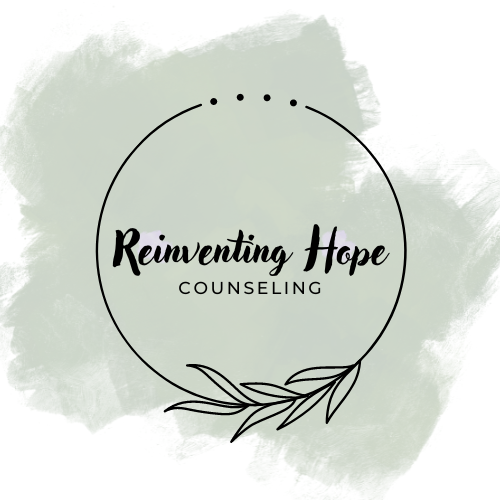Understanding Emotional and Psychological Abuse: How Trauma Leads Us to Toxic Relationships
Relationships are meant to be a source of love, support, and mutual growth. But for many of us who have experienced trauma, the dynamics of relationships can become complicated, often leading us into connections with people who inflict emotional and psychological abuse. To break free from these patterns, it's essential to understand the difference between these two forms of abuse and how trauma can draw us toward toxic partners.
The Difference Between Emotional and Psychological Abuse
While emotional and psychological abuse are closely related, each form of mistreatment targets different aspects of a person’s well-being.
Emotional abuse focuses on hurting a person’s feelings and sense of self-worth. This abuse can come in the form of constant criticism, belittling, manipulation, or withholding love and affection. The goal of emotional abuse is to erode self-esteem, leaving the victim feeling unworthy, unloved, and emotionally drained. Over time, this abuse can cause depression, anxiety, and emotional instability.
Psychological abuse, on the other hand, works to undermine a person’s mental stability and perception of reality. This type of abuse often involves mind games, manipulation, isolation, or gaslighting, a tactic where the abuser makes the victim question their own thoughts and reality. Psychological abuse creates confusion, fear, and insecurity, slowly breaking down a person’s mental health and self-trust.
Although these two forms of abuse can overlap, they each take a toll on different aspects of a person’s emotional and mental health. Many people who endure these kinds of abuse in relationships often struggle to recognize what’s happening, especially when past trauma clouds their judgment.
How Trauma Leads Us to Abusive Relationships
People who have experienced trauma, particularly in childhood, are more vulnerable to entering relationships that perpetuate emotional and psychological abuse. Why does this happen?
Unresolved Trauma Lowers Self-Worth
Traumatic experiences, especially those involving neglect, abuse, or abandonment, can leave deep emotional wounds that go unaddressed. When we carry unhealed trauma, it can create a distorted sense of self-worth, making us believe that we deserve less in relationships. This is fertile ground for abusers, who thrive on exploiting feelings of inadequacy and insecurity.Familiarity with Dysfunction
If chaos, emotional neglect, or abuse was a part of your upbringing, those patterns can feel familiar in adulthood, even though they are harmful. People tend to gravitate toward what they know, even if it’s toxic, because it feels safer than the unknown. We unconsciously recreate the dynamics of our past, seeking out relationships that mirror the dysfunction we grew up with.Attachment Issues
Trauma often disrupts our ability to form healthy attachments. When early caregivers were emotionally unavailable, neglectful, or abusive, we may develop insecure attachments in adulthood, leading to dependency on toxic relationships. The emotional highs and lows in these relationships can mimic the emotional roller coasters of childhood, where love and validation were inconsistent.Gaslighting from Childhood
For individuals who experienced gaslighting or emotional manipulation in childhood, where their reality was denied or dismissed, they may struggle to recognize these behaviors in adult relationships. A person who grew up being told their feelings were invalid or wrong might question their judgment, making it easier for a partner to manipulate or control them psychologically.
Breaking the Cycle
Healing from trauma and stepping away from abusive relationships requires awareness, self-compassion, and a commitment to breaking the cycle. Here are some ways to begin the process:
Acknowledge the Trauma
Recognizing how past trauma has influenced your present is the first step toward healing. Understanding the patterns in your relationships can help you see where and how emotional and psychological abuse may have taken root.Seek Support
Therapy can be instrumental in helping you uncover unresolved trauma and recognize abusive patterns. A trauma-informed therapist can provide the tools and insight to navigate difficult emotions, rebuild self-worth, and set boundaries in relationships.Build Boundaries
Boundaries are essential in maintaining healthy relationships. Learning to assert your needs and say “no” to disrespectful behavior protects your mental and emotional health. Abuse thrives in spaces where boundaries are unclear or weak, so establishing them is key to breaking the cycle.Reconnect with Yourself
Trauma and abuse often disconnect us from our true selves. By engaging in self-care, reflection, and healthy practices, you can rebuild your relationship with yourself and rediscover your worth. Surround yourself with people who lift you up and value you for who you are, not for what you can do for them.
Final Thoughts
The scars left by emotional and psychological abuse can run deep, especially when trauma leads us to repeat patterns of dysfunction. But healing is possible. By understanding how trauma influences our relationship choices, we can take the necessary steps to break free from abusive cycles, reclaim our power, and build relationships that nurture and uplift us.
If you recognize these patterns in your own life and are ready to break free from them, we’re here to help. At Reinventing Hope Counseling, we can help guide you through the process of healing and empower you to create healthy, fulfilling relationships.
Reach out today to take the first step toward reclaiming your life and rediscovering your self-worth.

